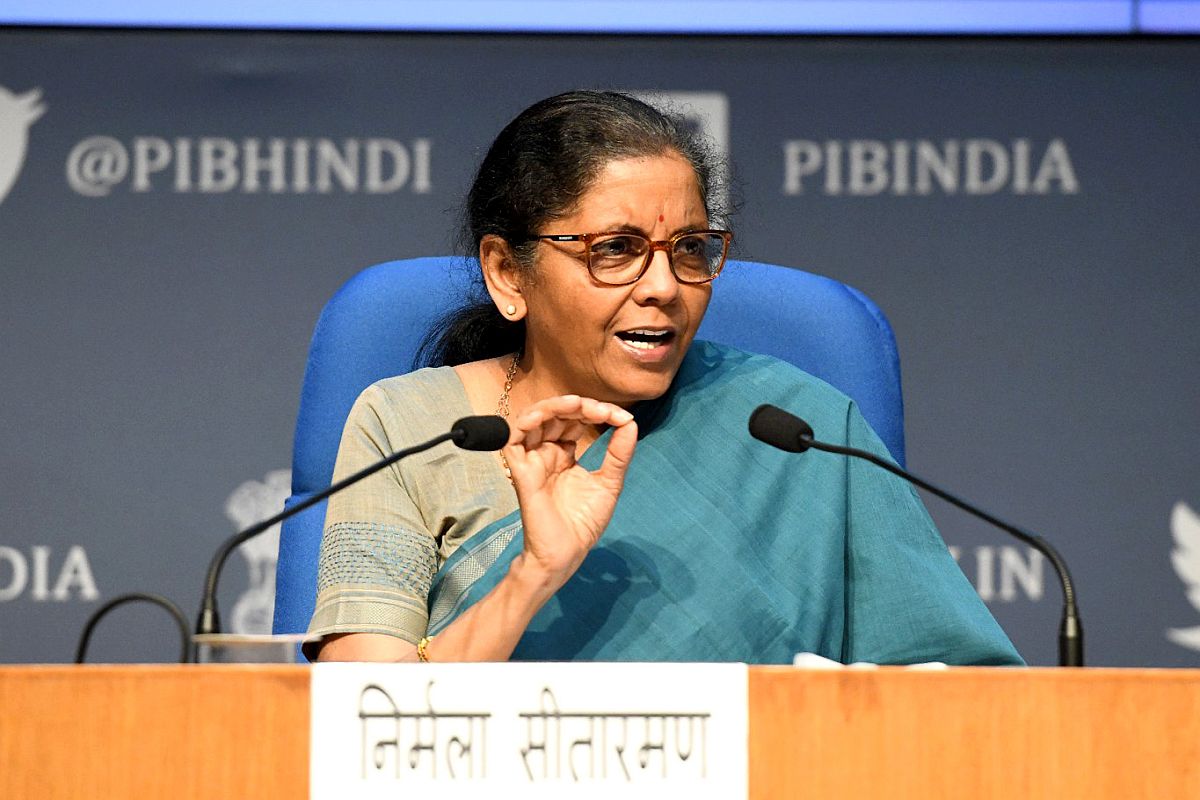FinMin launches new credit assessment model for MSMEs
Union Finance Minister Nirmala Sitharaman, along with Minister of State for Finance Pankaj Chaudhary, on Thursday launched the New Credit Assessment Model for MSMEs.
For people who have tax liability, the maximum late fee for non-filing of GSTR-3B returns for period July 2017 and January 2020 has been capped to Rs 500 without interest.

Union Minister for Finance and Corporate Affairs, Nirmala Sitharaman. (Photo: PIB)
The GST Council on Friday decided to reduce the late fee on the filing of GSTR-3B returns for the period between July 2017 and January 2020.
Finance Minister Nirmala Sitharaman announced that those who have no tax liabilities but who have not filed their returns between July 2017 and January 2020 will have to pay zero late fees.
Advertisement
The minister noted that a lot of return filing has been pending for the period from July 2017 to January 2020, which is prior to the emergence of Coronavirus pandemic.
Advertisement
For people who have tax liability, the maximum late fee for non-filing of GSTR-3B returns for period July 2017 and January 2020 has been capped to Rs 500 without interest.
Interest will, however, be payable on the tax component at the applicable rate for delays.
This will apply to all returns submitted during July 1, 2020 and September 30, 2020, Sitharaman said.
The GST Council also cleared the proposal to allow small taxpayers (below Rs 5cr annual turnover) to file their returns for Feb-June, 2020 with 9 per cent interest beyond June 30 and at 18 per cent interest after September 30.
The compliance relaxations have been made in view of the coronavirus crisis which has impacted businesses.
Sitharaman said that the council will meet again next month to discuss the compensation cess to the states, wherein the council members would discuss whether additional borrowings will have to be done for the same.
On the Friday’s meeting, Sitharaman said that the council discussed the correction of the inverted duty structure as it had impacted the GST collection.
Specifically, inverted duty structure on textile sector was discussed but no decision had been taken. In an earlier meeting, inverted duty on mobiles phones was corrected. Two other items where there is a case of inverted duty structure (inputs attracting more tax than final product) — fertilisers and footwears — were not taken up for discussion at Friday’s meet.
Advertisement